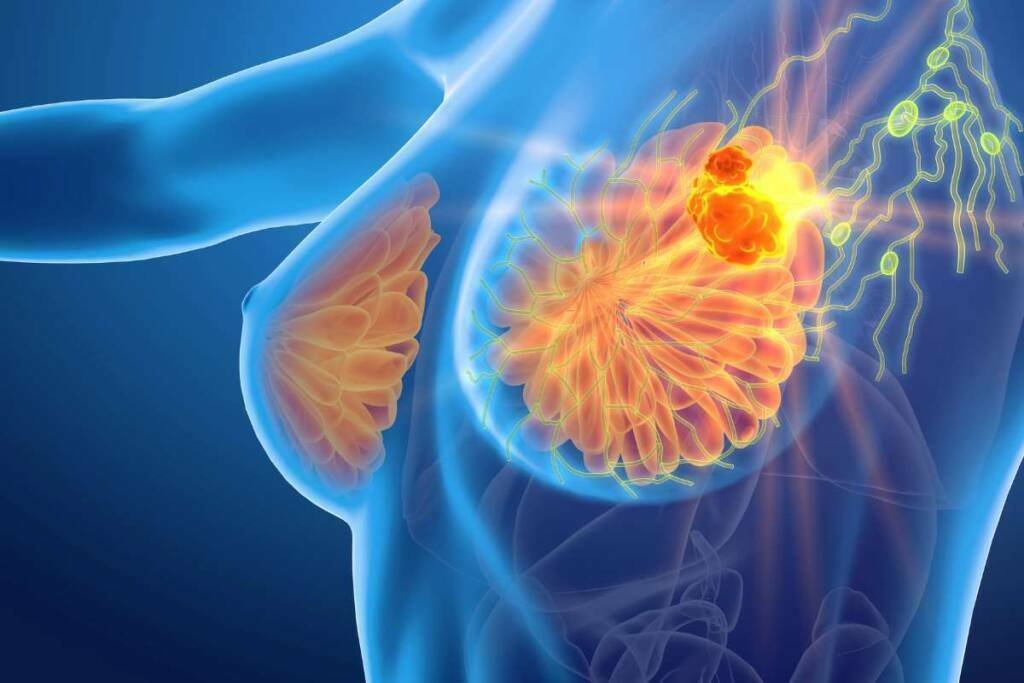Source – AstraZeneca
Enhertu (trastuzumab deruxtecan), a targeted antibody drug conjugate developed by AstraZeneca and Daiichi Sankyo, has received approval in China as a monotherapy for the treatment of adult patients with unresectable or metastatic HER2-low (IHC 1+ or IHC 2+/ISH-) breast cancer. This approval marks a significant development in the treatment landscape for HER2-low breast cancer in China.
The approval by China’s National Medical Products Administration (NMPA) was based on the positive results from the DESTINY-Breast04 Phase III trial, which were presented at the American Society of Clinical Oncology 2022 Annual Meeting and published in The New England Journal of Medicine. Enhertu demonstrated impressive efficacy in the trial, showing a 50% reduction in the risk of disease progression or death compared to physician’s choice of chemotherapy. The median progression-free survival (PFS) was 9.9 months with Enhertu versus 5.1 months with chemotherapy. Additionally, there was a 36% reduction in the risk of death, with a median overall survival (OS) of 23.4 months for patients treated with Enhertu compared to 16.8 months for those treated with chemotherapy.
“Historically, breast cancer tumours with low levels of HER2 expression have been classified as HER2-negative and have not been eligible for treatment with HER2-directed therapies. With this approval in China, based on the results of the DESTINY-Breast04 trial, clinicians will now be able to identify and potentially treat a distinct patient population based on HER2-low status.”
– Binghe Xu, MD, Director of the National Clinical Research Center for New Anticancer Drugs, Tenured Professor and Former Director, Department of Medical Oncology, Cancer Hospital Chinese Academy of Medical Sciences and Peking Union Medical College
Breast cancer is the most common cancer among women in China, with a high incidence rate and significant mortality. Around half of all breast cancers in China are considered HER2-low. The approval of Enhertu provides a targeted treatment option specifically designed for HER2-low breast cancer patients who have previously received systemic therapy or experienced disease recurrence within six months of completing adjuvant chemotherapy.
In terms of the treatment landscape, the approval of Enhertu expands the available treatment options for HER2-low breast cancer patients in China. Previously, HER2-targeted therapies were primarily used for HER2-positive breast cancer. Enhertu’s approval now allows healthcare professionals to address the specific needs of patients with HER2-low disease, who were previously limited in their treatment options.
The safety profile of Enhertu observed in the DESTINY-Breast04 trial was consistent with previous trials, and no new safety concerns were identified. This provides further confidence in the use of Enhertu as a viable treatment option for HER2-low breast cancer patients in China.
“Patients with HR-positive or HR-negative, HER2-low metastatic breast cancer previously had few effective treatment options beyond chemotherapy. The results from the DESTINY-Breast04 trial show Enhertu provides a significant improvement in outcomes compared to chemotherapy for patients whose tumours are determined to be HER2-low via routine testing. This approval is an important advance in the way breast cancer is classified and treated in China and supports our vision to bring Enhertu to more patients worldwide.”
– Dave Fredrickson, Executive Vice President, Oncology Business Unit, AstraZeneca
In summary, the approval of Enhertu in China for the treatment of unresectable or metastatic HER2-low breast cancer represents a significant advancement in the management of this patient population. It offers improved efficacy and provides healthcare professionals with a targeted therapy option tailored to HER2-low breast cancer, potentially leading to better outcomes for patients in China.





























